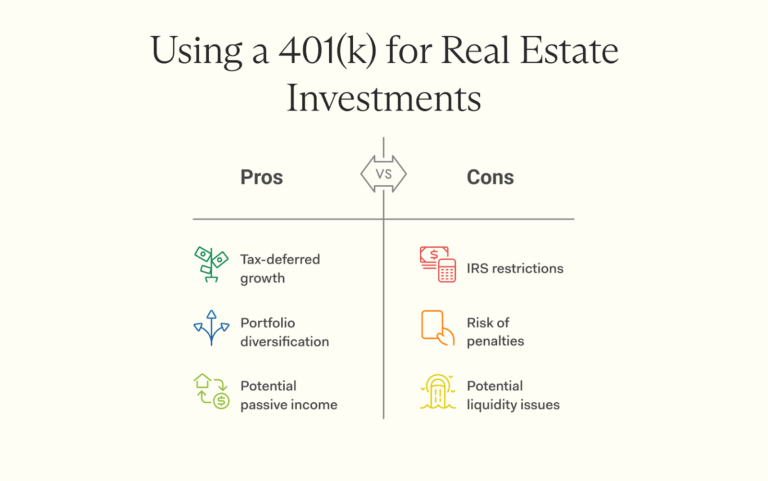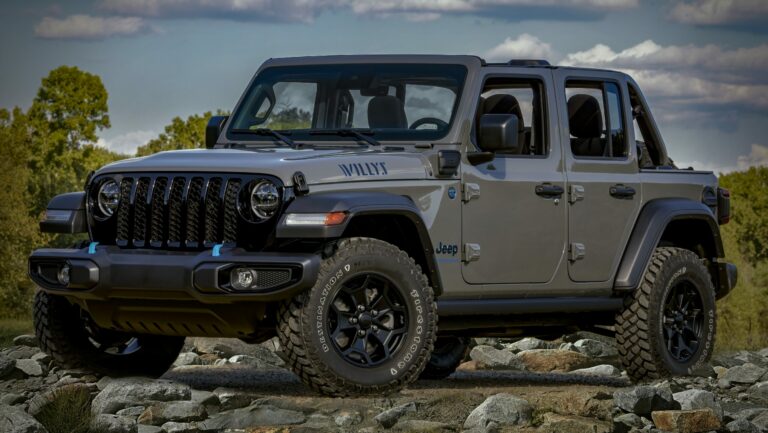2018 Jeep Rubicon Diesel For Sale: A Deep Dive into a Unique Off-Road Beast
2018 Jeep Rubicon Diesel For Sale: A Deep Dive into a Unique Off-Road Beast jeeps.truckstrend.com
The search for a "2018 Jeep Rubicon Diesel For Sale" often begins with a specific vision: an unyielding off-road machine, combining the legendary capability of a Jeep Wrangler Rubicon with the formidable torque and fuel efficiency of a diesel engine. This particular combination, however, is a fascinating anomaly in the automotive landscape, presenting both incredible opportunities and unique considerations for potential buyers. Unlike later model years, a factory-produced 2018 JL Wrangler Rubicon with a diesel engine was not available in the mainstream U.S. market. Therefore, encountering a "2018 Jeep Rubicon Diesel" almost invariably means you’re looking at a highly customized vehicle, likely featuring an aftermarket engine swap. This article will serve as your comprehensive guide, dissecting what makes these vehicles so desirable, what to look for, and how to navigate the market for such a specialized off-road legend.
The Allure of the 2018 Jeep Rubicon Diesel: A Rare Breed
2018 Jeep Rubicon Diesel For Sale: A Deep Dive into a Unique Off-Road Beast
The appeal of a diesel-powered Jeep Wrangler Rubicon is undeniable. Diesel engines are renowned for their massive low-end torque, superior fuel economy, and impressive durability, all qualities highly coveted by serious off-road enthusiasts and overlanders. A Rubicon, on the other hand, represents the pinnacle of factory off-road capability within the Wrangler lineup, boasting features like Dana 44 heavy-duty axles, electronic locking differentials, an electronic sway bar disconnect, and a 4:1 low-range transfer case.
When these two concepts merge in the form of a "2018 Jeep Rubicon Diesel," the result is a vehicle promising unparalleled performance on the trails and extended range for remote adventures. However, it’s crucial to understand the context:
- The Factory Reality: Jeep introduced the 3.0L EcoDiesel V6 engine to the JL Wrangler lineup for the 2020 model year. This means a 2018 model with a diesel engine is not a factory offering.
- The Aftermarket Solution: Consequently, a "2018 Jeep Rubicon Diesel" for sale is almost certainly a gasoline-powered 2018 JL Rubicon that has undergone an engine conversion. Common diesel swap candidates include older generations of the EcoDiesel V6, Cummins R2.8 turbodiesel, or even larger engines like Duramax or OM606 from Mercedes.
- The "Unicorn" Status: This aftermarket nature makes these vehicles true "unicorns" in the market. Each build is unique, reflecting the expertise and choices of the individual or shop that performed the conversion. This uniqueness contributes to their desirability among a niche group but also necessitates a highly informed buying process.
The benefits of such a conversion, when executed properly, are significant: the brute force for rock crawling, the efficiency for long highway stretches, and the robust nature for demanding expeditions.

Key Features and Benefits of a Diesel Rubicon (Regardless of Origin)
Whether factory or custom-built, a diesel engine fundamentally transforms the Rubicon experience. Here are the core benefits that draw enthusiasts:
- Unrivaled Torque for Off-Roading: Diesel engines deliver peak torque at much lower RPMs than gasoline engines. This low-end grunt is invaluable for technical off-roading, allowing for precise throttle control, effortless crawling over obstacles, and excellent hill-climbing capability without needing to rev high.
- Improved Fuel Economy and Range: Diesel fuel is more energy-dense, and diesel engines are inherently more efficient. This translates to significantly better miles per gallon (MPG) compared to gasoline counterparts, providing a much longer range between fill-ups – a critical advantage for remote overlanding trips.
- Enhanced Towing Capability: The robust torque output of a diesel engine makes it an excellent choice for towing. A diesel Rubicon can more easily pull trailers, campers, or other gear, especially over varied terrain.
- Durability and Longevity: Diesel engines are often built with heavier-duty components designed for higher compression and sustained operation, leading to a reputation for greater longevity and reliability when properly maintained.
- Rubicon-Specific Off-Road Prowess: Beyond the engine, the Rubicon trim adds a suite of capabilities that no other Wrangler offers as standard:
- Heavy-Duty Dana 44 Axles: For increased strength and durability.
- Electronic Locking Differentials (Front & Rear): Maximizes traction in challenging low-traction situations.
- Electronic Sway Bar Disconnect: Allows for increased wheel articulation on uneven terrain, improving traction.
- 4:1 Rock-Trac HD Part-Time 4WD System: Provides a deeply geared low range for extreme crawling.
What to Look For When Buying a 2018 Jeep Rubicon Diesel
Given the unique nature of a "2018 Jeep Rubicon Diesel" (i.e., an engine-swapped vehicle), a standard pre-purchase checklist won’t suffice. You need to delve much deeper:
- Engine Swap Documentation: This is paramount. Get detailed records of who performed the swap, when, and what components were used. Look for receipts for parts, labor, and any specialized tuning. A reputable shop or meticulous DIY builder will have this.
- Engine Type and Mileage: Understand which specific diesel engine was swapped in. Research its common issues, parts availability, and maintenance schedule. Note the mileage on the engine itself, which may be different from the vehicle’s odometer.
- Quality of the Swap: Inspect the engine bay for clean wiring, proper hose routing, secure mounting points, and professional-looking welds. Look for signs of shoddy workmanship that could lead to future problems.
- Cooling System Upgrade: A diesel engine often generates more heat. Ensure the cooling system (radiator, fans, intercooler) was adequately upgraded to handle the new engine’s thermal demands.
- Transmission Compatibility: Verify that the transmission is compatible with the diesel engine’s torque output. Some swaps require transmission upgrades or adaptations.
- Exhaust and Emissions: Understand the exhaust system and its compliance with local emissions regulations. Swapped engines can sometimes run into issues with state inspections.
- Electrical System Integration: A major challenge in swaps is integrating the new engine’s electronics with the Jeep’s existing systems (e.g., gauges, cruise control, ABS). Ensure all systems function correctly.
- Rust and Undercarriage Inspection: As with any used off-road vehicle, thoroughly inspect the frame, suspension components, and body for rust, especially in common problem areas.
- Test Drive: Pay close attention to engine performance (power delivery, turbo spool), transmission shifts, and any unusual noises or vibrations. Test all 4WD modes and the Rubicon-specific features.
- VIN Check & History Report: Run a comprehensive VIN check to verify the vehicle’s history, accident reports, and title status. While it won’t show the swap, it provides crucial background.
- Pre-Purchase Inspection (PPI) by a Specialist: This is non-negotiable. Find a mechanic with experience in diesel engine swaps and, ideally, Jeeps. They can identify potential issues that a general mechanic might miss.
Pricing and Valuation: Navigating the Market
Pricing a "2018 Jeep Rubicon Diesel" is more art than science, as standard market values for this specific configuration don’t exist. The price will heavily depend on the quality and type of the engine swap, the overall condition of the vehicle, its mileage, and any additional modifications.
Factors Influencing Price:
- Engine Swap Type: A high-quality, professionally installed EcoDiesel or Cummins R2.8 swap from a reputable shop will command a higher price than a less common or DIY conversion.
- Quality of Workmanship: Impeccable integration, clean wiring, and proper calibration significantly add value.
- Mileage: Lower mileage on both the engine and the chassis generally means a higher price.
- Condition: Excellent exterior, interior, and undercarriage condition will increase value.
- Additional Modifications: High-quality aftermarket bumpers, winches, lift kits, wheels, and tires can add to the price, but only if they are desirable and well-installed.
- Documentation and Service History: Comprehensive records of the swap and subsequent maintenance are invaluable.
Estimated Price Range Table (Hypothetical for a well-done aftermarket swap):
| Condition | Engine Swap Type | Mileage (Chassis/Engine) | Key Modifications | Estimated Price Range (USD) |
|---|---|---|---|---|
| Excellent | Cummins R2.8 / EcoDiesel | < 50k / < 30k | Quality Lift, Armor, Winch, Large Tires | $55,000 – $75,000+ |
| Very Good | Cummins R2.8 / EcoDiesel | 50k-80k / 30k-60k | Mild Lift, Aftermarket Wheels, Basic Armor | $45,000 – $55,000 |
| Good | Other Diesel Swap (e.g., VM) | 80k-120k / 60k-90k | Stock or Minor Upgrades | $35,000 – $45,000 |
| Fair | Older/Less Common Swap | 120k+ / 90k+ | Needs TLC, potentially some non-critical issues | $25,000 – $35,000 |
Note: These prices are highly speculative due to the custom nature of these vehicles. Actual prices can vary wildly based on market demand, builder reputation, and specific components used.
Potential Challenges and Solutions
While a diesel Rubicon offers many advantages, potential challenges exist, particularly with a swapped vehicle:
- Legality and Emissions: Diesel swaps can face strict emissions regulations in certain states or countries. Research your local laws thoroughly.
- Solution: Ensure the engine swap is compliant with local regulations, and request documentation of any necessary certifications or inspections.
- Insurance: Some insurance companies may be hesitant to fully cover heavily modified or engine-swapped vehicles, or they may charge higher premiums.
- Solution: Contact your insurance provider before purchase to discuss coverage options for a modified vehicle. Be transparent about the engine swap.
- Parts and Service: Finding mechanics familiar with a specific diesel swap, especially a less common one, can be challenging. Parts for older diesel engines might also be harder to source.
- Solution: Identify reputable shops specializing in diesel performance or engine swaps in your area. Build a relationship with them. Keep detailed records of parts used.
- Resale Value: While a high-quality, well-documented swap can enhance value for the right buyer, a poorly executed or undocumented swap can severely hinder it.
- Solution: Maintain meticulous records, keep the vehicle in excellent condition, and be prepared to educate future buyers on the quality of the conversion.
Practical Advice and Actionable Insights
For anyone seriously considering a "2018 Jeep Rubicon Diesel," patience and thorough due diligence are your best friends.
- Educate Yourself: Research the specific diesel engine types commonly swapped into Wranglers. Understand their pros, cons, and typical maintenance.
- Network: Join online forums and social media groups dedicated to Jeep engine swaps. Learn from others’ experiences, both positive and negative.
- Seek Expertise: Don’t rely solely on your own inspection. A pre-purchase inspection by a mechanic specializing in diesel swaps or Jeeps is paramount.
- Verify, Verify, Verify: Cross-reference information provided by the seller with documentation and third-party checks (VIN, history reports).
- Understand the Commitment: Owning a custom-built vehicle often means higher maintenance costs, specialized service needs, and potentially unique challenges. Be prepared for this commitment.
- Negotiate Wisely: Given the unique valuation challenges, be prepared to negotiate based on the quality of the build, not just market averages.
Concluding Summary
The "2018 Jeep Rubicon Diesel For Sale" represents a niche but highly desirable segment of the off-road market. It’s a testament to the ingenuity of builders and the passion of enthusiasts seeking the ultimate combination of Jeep’s legendary capability and diesel’s undeniable advantages. While you won’t find a factory-built 2018 model with a diesel engine, the aftermarket offers a thrilling alternative.
Purchasing such a vehicle demands a rigorous and informed approach, focusing heavily on the quality and documentation of the engine swap. By understanding the unique characteristics, potential challenges, and key inspection points, you can navigate the market confidently. For the discerning buyer who values torque, efficiency, and exclusivity, a well-executed 2018 Jeep Rubicon Diesel swap can indeed be the ultimate off-road companion, offering a driving experience unlike any other.
Frequently Asked Questions (FAQ)
Q1: Was the 2018 Jeep Rubicon available with a factory diesel engine?
A1: No, the 2018 Jeep JL Wrangler Rubicon was not offered with a factory diesel engine in the U.S. market. The 3.0L EcoDiesel V6 for the JL Wrangler was introduced for the 2020 model year. Therefore, a "2018 Jeep Rubicon Diesel" is an aftermarket engine-swapped vehicle.
Q2: What kind of diesel engines are typically swapped into Wranglers?
A2: Common diesel engine swaps for Wranglers include the Cummins R2.8 turbodiesel, older generations of the FCA/VM Motori 3.0L EcoDiesel V6, and less commonly, larger engines like the Duramax V8 or various Mercedes-Benz diesel engines.
Q3: Are diesel engine swaps legal everywhere?
A3: The legality of engine swaps varies significantly by state and country. Emissions regulations are often the primary hurdle. It’s crucial to research your local laws thoroughly and ensure the swapped vehicle can pass required inspections and registration.
Q4: How does a diesel Rubicon perform off-road compared to a gasoline one?
A4: A diesel Rubicon typically excels off-road due to its superior low-end torque. This allows for easier rock crawling, better control at low speeds, and less need to rev the engine high. The improved fuel economy also provides a greater range for extended off-road trips.
Q5: What are the main maintenance differences for a diesel Rubicon?
A5: Diesel engines generally require different maintenance compared to gasoline engines, including specific diesel engine oil, fuel filters that need regular replacement (due to fuel quality and water separation), and potentially more complex emissions systems (e.g., Diesel Exhaust Fluid – DEF, if equipped). Maintenance costs can sometimes be higher, and finding mechanics familiar with specific diesel swaps might be necessary.
Q6: Is a 2018 Jeep Rubicon Diesel (swapped) a good daily driver?
A6: It can be, but it depends heavily on the quality of the swap and the specific diesel engine used. A well-executed swap with proper integration can be reliable and efficient for daily driving. However, some swaps might introduce more noise, vibration, or require more specialized attention than a factory vehicle. Always consider the potential complexities of a highly modified vehicle for daily commuting.


